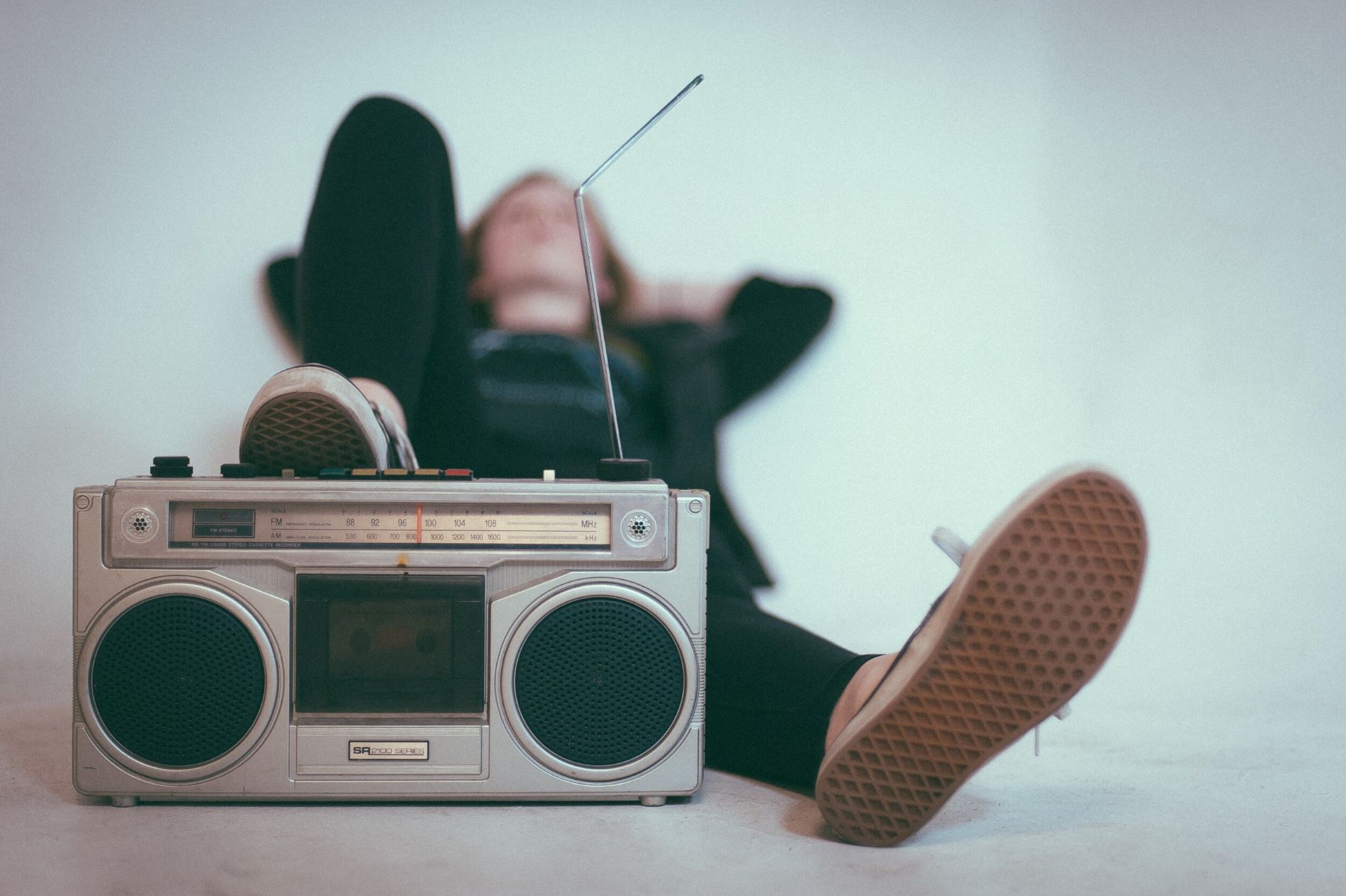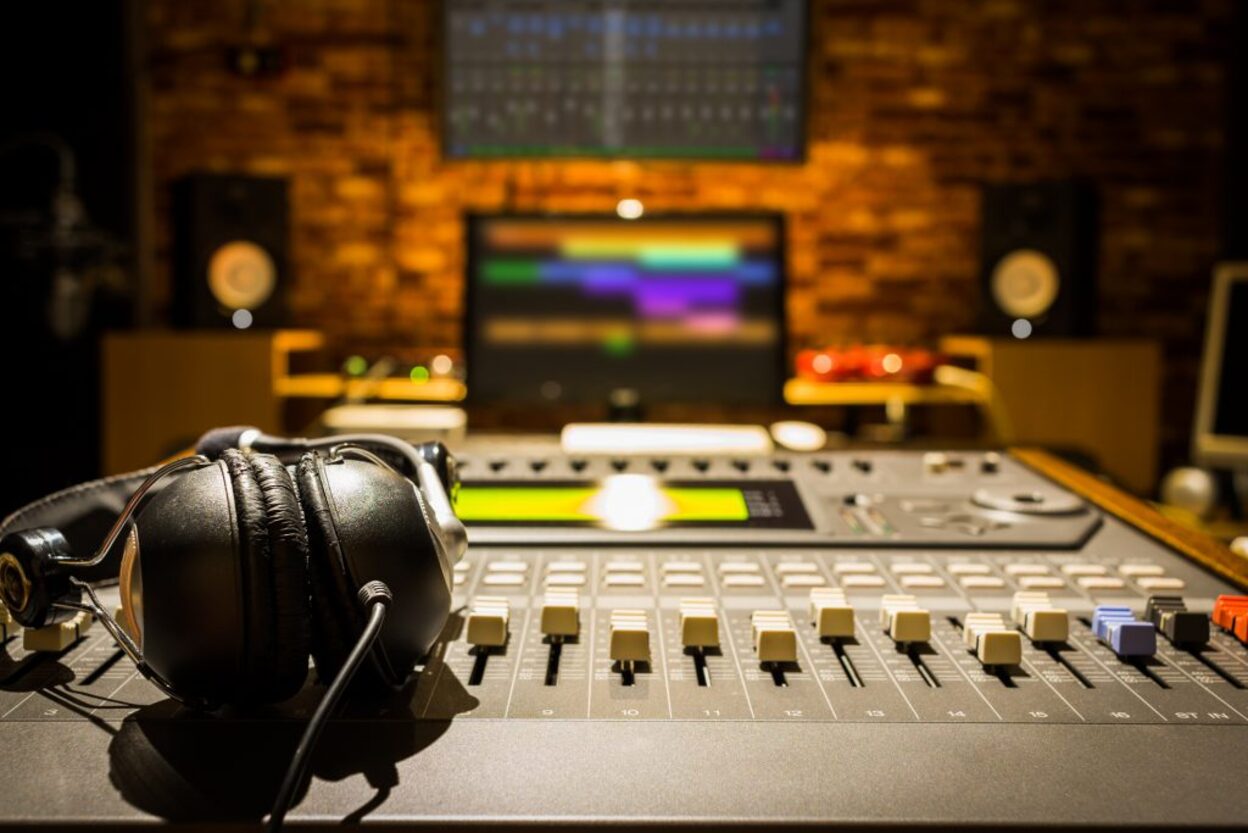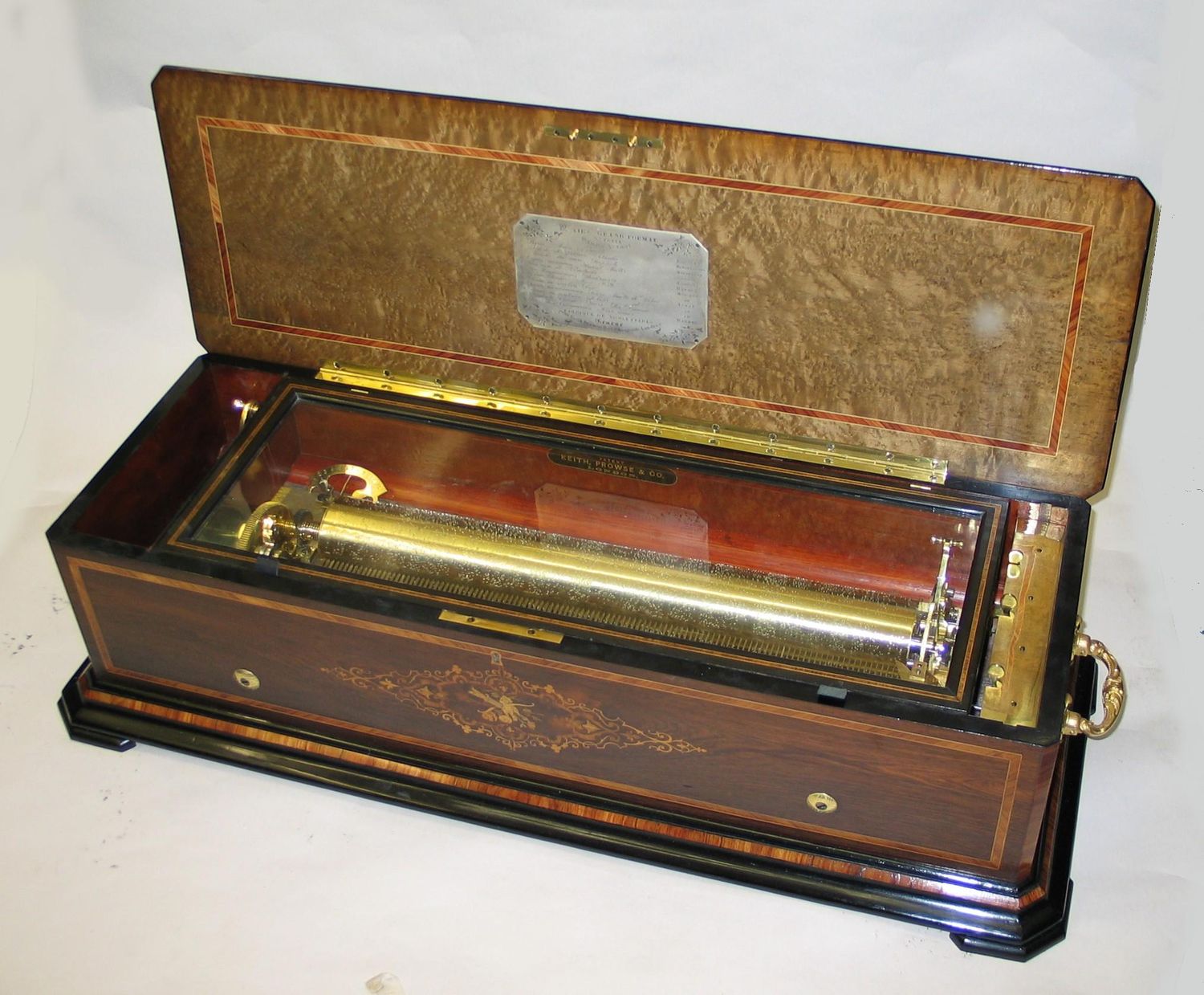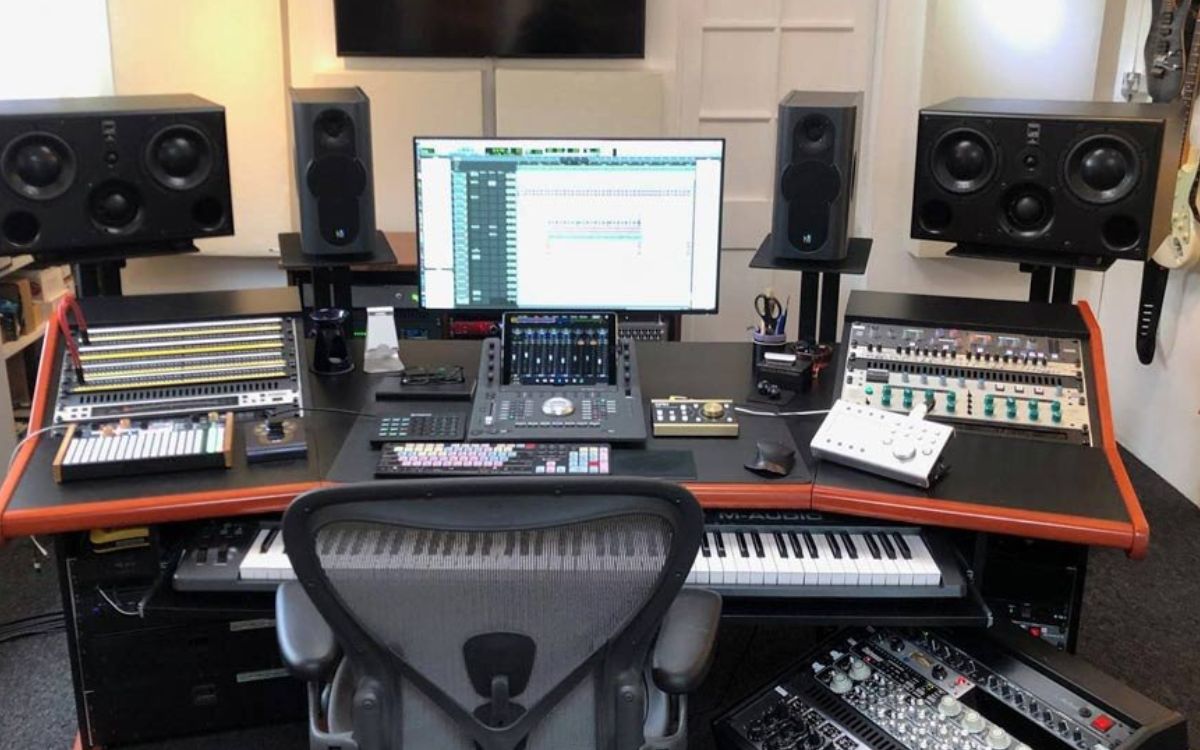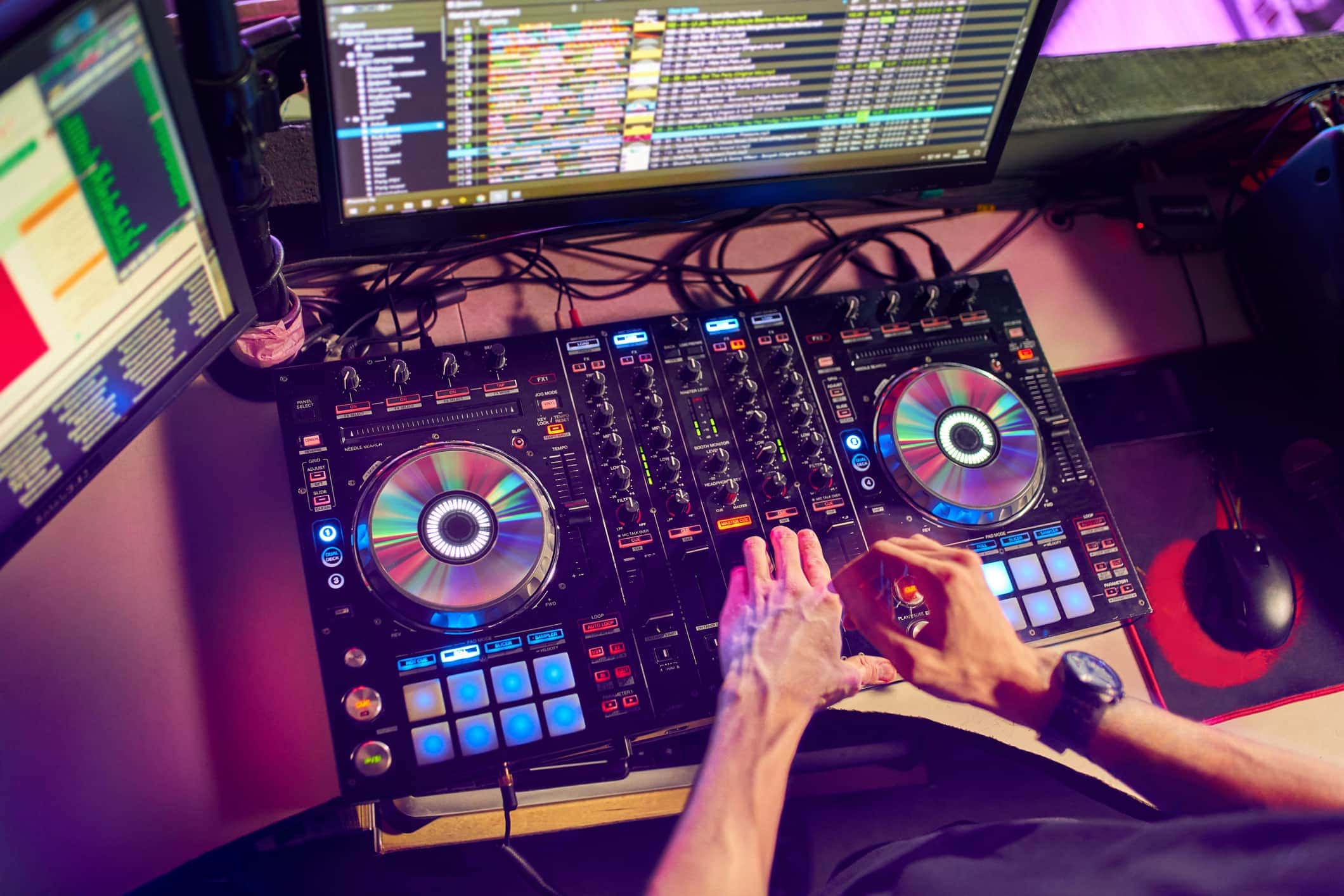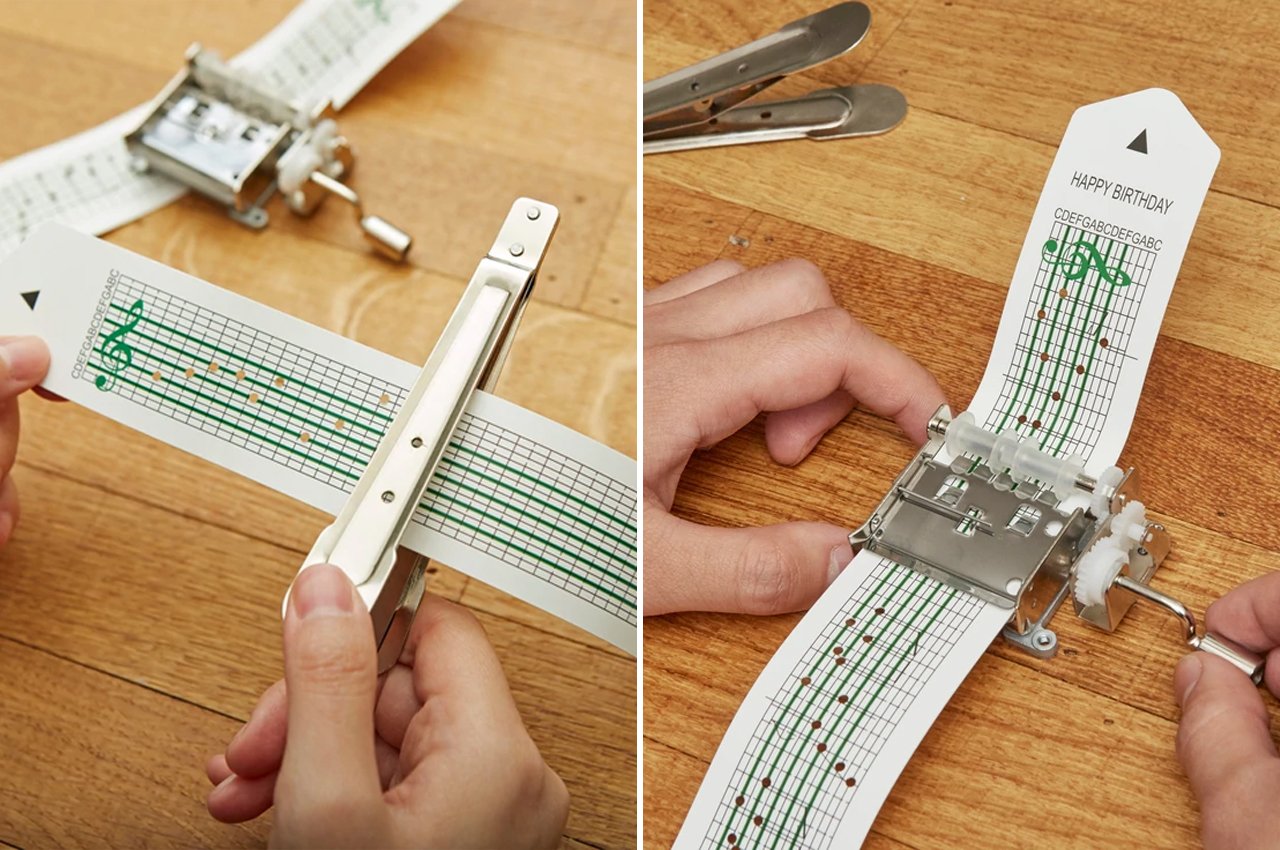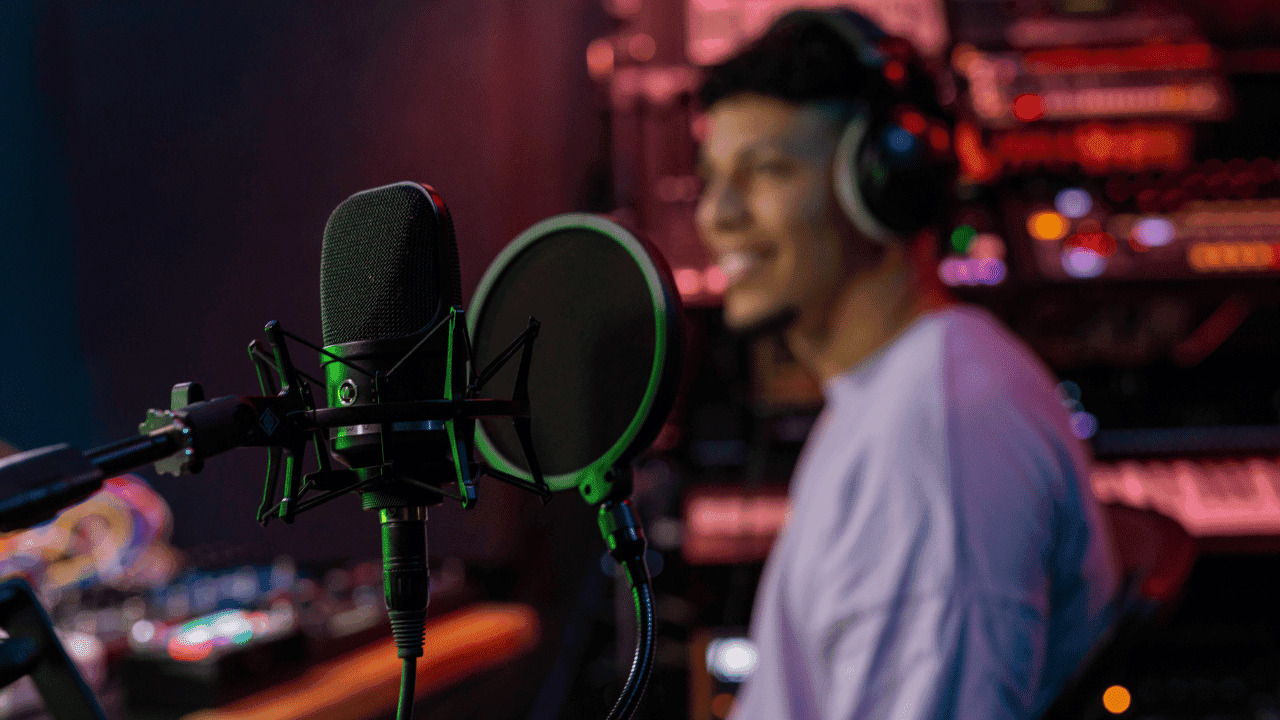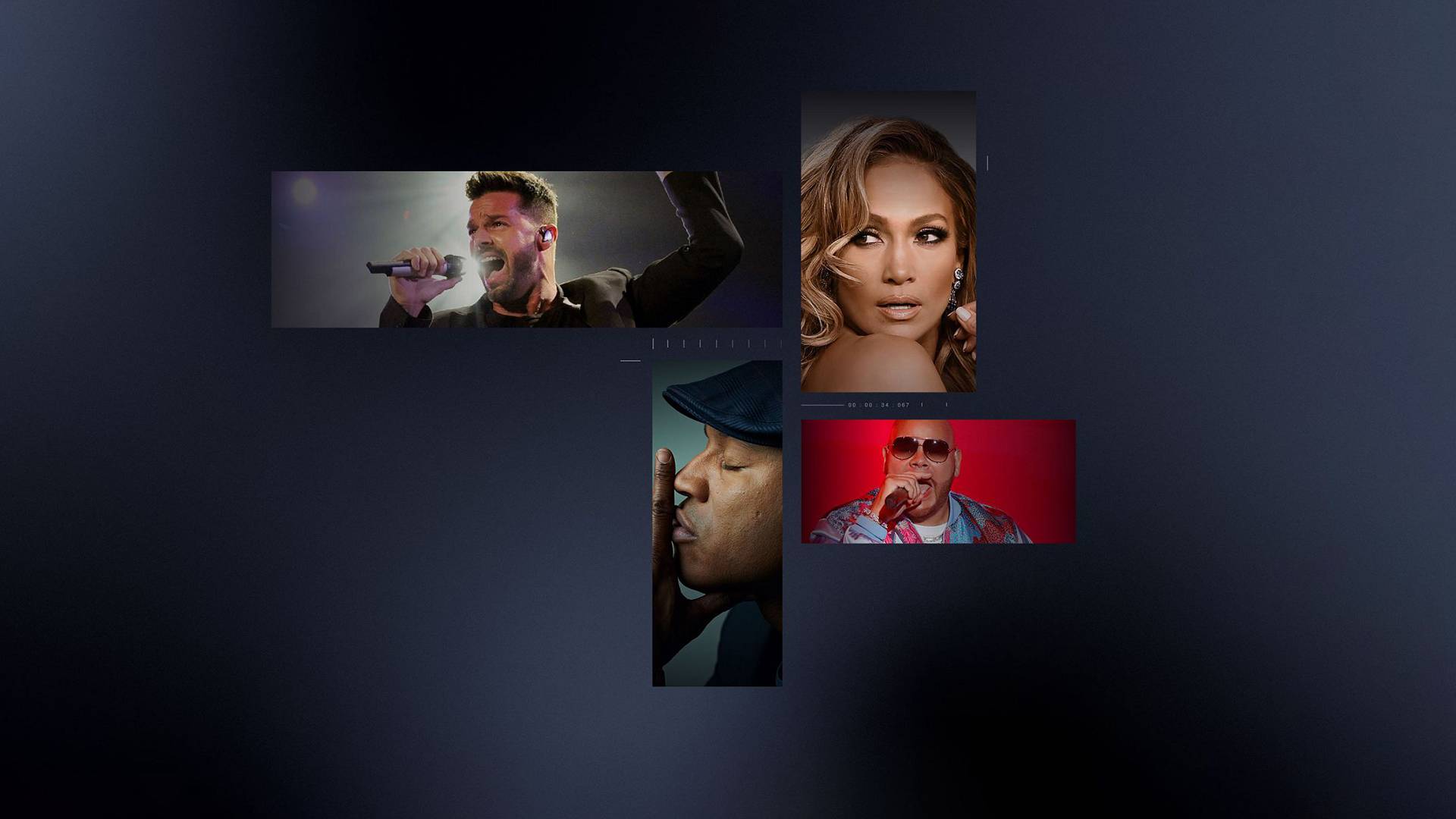Home>Devices & Equipment>Radio>How To Get Music On Radio
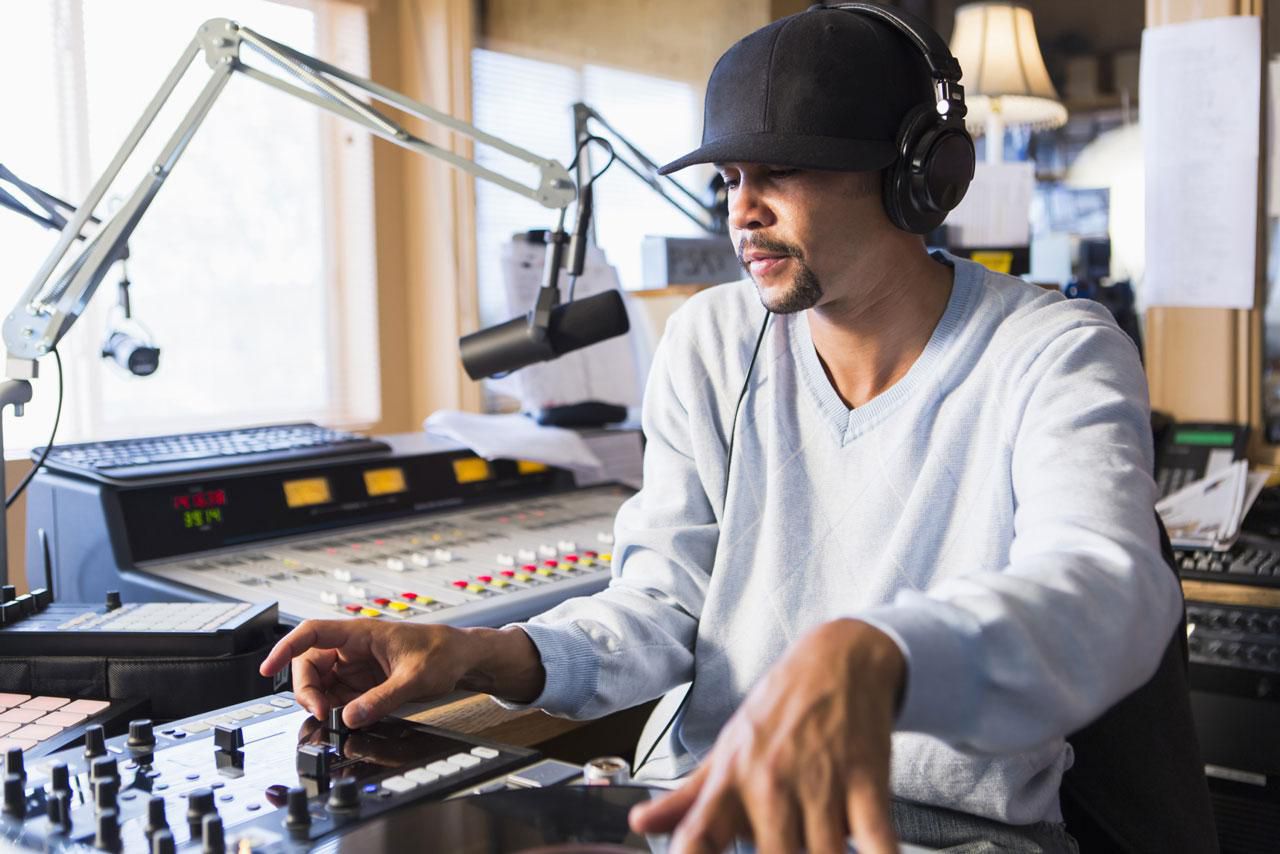

Radio
How To Get Music On Radio
Published: November 10, 2023
Learn how to get your music on the radio and reach a wider audience. Discover effective strategies and tips to increase your chances of airplay.
(Many of the links in this article redirect to a specific reviewed product. Your purchase of these products through affiliate links helps to generate commission for AudioLover.com, at no extra cost. Learn more)
Table of Contents
Introduction
Welcome to the exciting world of radio! Getting your music played on radio stations is a fantastic way to reach a wide audience and gain exposure for your talent. Radio remains a powerful medium for promoting music, despite the rise of streaming platforms and digital music consumption.
In this article, we will explore the ins and outs of the radio industry and provide you with valuable insights and strategies to help get your music on air. Whether you’re a budding artist or an established musician looking to expand your reach, understanding how radio works and knowing the best approaches to connect with radio stations can significantly boost your chances of success.
Throughout the article, we’ll discuss the importance of preparing your music for radio, selecting the right stations to target, and creating an effective press kit to make a lasting impression. We’ll also delve into the process of contacting radio stations, submitting your music, and following up on your submissions. Building relationships with radio DJs and exploring alternative avenues for music promotion outside of radio will also be covered.
It’s important to note that each radio station operates differently, with its own unique target audience, programming, and submission guidelines. However, the fundamentals we’ll cover will serve as a solid foundation for navigating the world of radio promotion and increasing the likelihood of your music making it onto the airwaves.
So, if you’re ready to embark on this exciting journey, let’s dive into the wonderful realm of radio and explore the strategies that will help broadcasters discover and share your music with their loyal listeners.
Understanding the Radio Industry
The radio industry plays a crucial role in the music ecosystem, providing a platform for artists to showcase their work and connect with audiences. It’s important to have a solid understanding of how the radio industry operates to increase your chances of success.
First and foremost, radio stations are classified into various formats, each catering to a specific genre or demographic. These formats can range from country music and rock to pop and hip-hop. It’s essential to identify which formats align with your music and target audience.
Within each format, radio stations have different levels of reach and influence. There are major national stations with a wide coverage area, as well as local and community-based stations that focus on serving specific regions or communities. Researching and identifying the stations that align with your goals will help you focus your efforts and resources more effectively.
Additionally, understanding the typical programming schedule of radio stations is crucial. Most stations have designated time slots for specific genres or shows, such as morning drive-time shows, midday programs, and evening specialty shows. Tailoring your submission and promotional efforts to align with these time slots can increase your chances of getting airplay.
Besides traditional terrestrial radio, internet radio and streaming platforms have gained significant prominence in recent years. Online radio stations and platforms like Pandora, Spotify, and Apple Music have their own unique programming and submission guidelines. Exploring these platforms alongside traditional radio can provide additional opportunities for reaching new audiences and gaining exposure.
Lastly, it’s important to understand the role of radio DJs in the industry. DJs are the gatekeepers who decide which songs get played on air. Building relationships and establishing connections with DJs can be instrumental in getting your music heard. DJs often have their own preferences and specific submission guidelines, so doing your research beforehand and personalizing your approach can go a long way.
By understanding the various aspects of the radio industry, you can tailor your music and promotional strategies to increase your chances of securing airplay. The next step is to prepare your music and materials to make a strong impression. Let’s dive into the process of getting your music radio-ready in the next section.
Preparing Your Music
Before submitting your music to radio stations, it’s crucial to ensure that your tracks are properly prepared and radio-ready. Here are some key steps to follow:
- Quality Production: Invest in professional recording, mixing, and mastering to ensure that your music sounds polished and ready for radio. Clean audio with well-balanced instrumentation and vocals will grab the attention of radio programmers.
- Catchy Hooks and Strong Melodies: Radio listeners are drawn to songs with memorable hooks and captivating melodies. Spend time crafting powerful choruses and melodies that will engage and resonate with listeners.
- Radio Edit: Create a radio-friendly version of your song by removing any explicit content, excessive intros or outros, and unnecessary repetitions. Keep in mind that most radio stations have strict guidelines regarding profanity and song length.
- Professional Artwork: Your music should be accompanied by professional and eye-catching artwork. This visual element helps create a strong first impression and can make your submission more appealing to radio stations.
- Clear and Engaging Artist Bio: Craft a concise and compelling artist biography that showcases your unique story, musical style, and accomplishments. Radio stations often refer to artist bios when introducing new music to their audience.
- Strong Online Presence: Establish a presence on social media platforms, music streaming sites, and your own artist website. Having a strong online presence not only helps radio stations find and connect with you, but also allows fans to discover more about your music.
Remember, the goal is to make a lasting impression with radio programmers and listeners. By ensuring that your music is professionally produced, hooks audiences, is radio-friendly, has appealing artwork, a compelling artist bio, and a strong online presence, you’ll increase your chances of success when submitting your music to radio stations.
In the next section, we will discuss how to choose the right radio stations for your music and how to effectively contact them to maximize your chances of airplay.
Choosing the Right Radio Stations
When it comes to getting your music played on radio, targeting the right stations is crucial. Casting a wide net and submitting your music to every station may seem tempting, but it’s more effective to focus on stations that align with your music genre and target audience. Here are some steps to follow when choosing the right radio stations:
- Research Radio Formats: Start by researching different radio formats and identifying the ones that best match your music genre. Each format has its own dedicated listener base, so it’s important to target stations that cater to your specific genre.
- Consider Location: Decide whether you want to focus on local, regional, or national radio stations. Local stations are more accessible and can help you build a strong fan base in your immediate area. Regional and national stations have a broader reach, but the competition is often higher.
- Study Station Demographics: Understand the target audience and demographics of each radio station. This information is usually available on their websites or through industry research. It’s important to ensure that your music will resonate with the listeners of the stations you choose.
- Pay Attention to Specialty Shows: Many radio stations have specialty shows dedicated to specific genres or themes. These shows often have more flexibility in terms of the music they play. Research and identify specialty shows that align with your music to increase your chances of airplay.
- Consider Online and Independent Stations: Don’t overlook the opportunities provided by internet radio stations and independent online platforms. These stations often have niche audiences and can provide a platform to showcase your music to a dedicated fan base.
Remember, it’s better to focus on a handful of carefully selected radio stations that match your music style and target audience rather than casting a wide net and hoping for the best. Tailor your submission strategy to each station you choose, and put effort into crafting personalized messages that showcase your knowledge of their programming.
Once you’ve identified the right radio stations, it’s time to reach out to them. In the next section, we will discuss the best practices for contacting radio stations and how to create an effective press kit to support your submission.
Contacting Radio Stations
When it comes to contacting radio stations, it’s important to make a positive and professional impression. Here are some best practices to follow when reaching out to radio stations:
- Research Contact Information: Visit the radio station’s website or social media pages to find the appropriate contact information. Look for the Music Director, Program Director, or the specific DJ who hosts a show relevant to your music.
- Personalize Your Message: Craft personalized emails or letters for each station you contact. Address the recipient by name and mention specific details about the station or DJ to show that you’ve done your research. Personalization makes your message stand out and shows your genuine interest in their station.
- Be Clear and Concise: Keep your initial correspondence brief and to the point. Introduce yourself, provide a brief background on your music, and express your interest in having your music considered for airplay. Include links to your music, website, and any reviews or press coverage you’ve received.
- Follow Submission Guidelines: Some radio stations may have specific submission guidelines on their website. Make sure to follow these guidelines carefully. They may include preferred file formats, music submission portals, or any additional requirements to consider.
- Be Patient: Radio stations receive numerous submissions, so it’s important to be patient. It may take some time for them to review your music and respond. Avoid sending multiple follow-up messages too soon. Instead, wait for a reasonable period and then politely inquire about the status of your submission.
- Build Relationships: When a radio station does play your music, be sure to express your gratitude. Follow up with a thank-you note or email, and continue to build relationships with the DJs and station personnel. Engage with them on social media and support their work whenever possible.
- Attend Local Events: If possible, attend local music events, industry conferences, or workshops where radio station personnel may be present. Networking in person can help you establish connections and increase your chances of getting noticed.
Remember, contacting radio stations is not a one-time effort. Regularly update the stations about any new releases, upcoming shows, or other notable achievements. Stay active and engaged to keep your music on their radar.
In the next section, we will discuss how to create an effective press kit to support your music submission and make a lasting impression.
Creating an Effective Press Kit
An effective press kit can greatly enhance your chances of catching the attention of radio stations and industry professionals. It serves as a comprehensive package that provides essential information about you and your music. Here are the key components to include in your press kit:
- Biography: Write a concise and compelling artist biography that highlights your background, musical journey, and notable achievements. Make sure to include any previous radio airplay, awards, or collaborations that add credibility to your story.
- Music: Include a selection of your best tracks in your press kit. Ensure that the songs represent your current musical style and highlight your strongest qualities. Provide download links or streaming platforms where the recipient can easily access and listen to your music.
- Press Coverage: If you’ve received any press coverage, positive reviews, or interviews, include them in your press kit. This demonstrates that your music has gained attention and validation from reputable sources.
- Professional Photos: Include high-quality promotional photos of yourself or your band. These photos should capture your personality and style, making it easier for radio stations to create visual content around your music.
- Social Media and Website Links: Provide links to your social media profiles, website, and any other online platforms where listeners can engage with you and find more information about your music.
- Upcoming Events: If you have any upcoming shows, tours, or other relevant events, mention them in your press kit. This shows that you’re an active and in-demand artist, which may pique the interest of radio stations looking to promote upcoming events.
- Testimonials: Include any testimonials or endorsements you’ve received from industry professionals, fellow musicians, or satisfied fans. Positive testimonials can further establish your credibility and highlight the impact of your music.
Ensure that your press kit is well-organized and visually appealing. Use a professional template or design to create a cohesive and polished package. Remember to keep it concise and highlight the most relevant and impressive aspects of your music and career.
A strong press kit demonstrates that you have a professional image and that you’re serious about your music. It can catch the attention of radio stations and industry professionals, increasing your chances of being considered for airplay.
In the next section, we will discuss the process of submitting your music to radio stations and the importance of following up on your submissions.
Submitting Your Music
Once you have prepared your music, identified the right radio stations, and created an effective press kit, it’s time to submit your music for consideration. Here are some important steps to follow when submitting your music to radio stations:
- Follow Submission Guidelines: Pay close attention to the submission guidelines provided by each radio station. Some stations may prefer physical CDs, while others might prefer digital submissions. Make sure to adhere to their preferred format, file types, and any specific instructions they provide.
- Personalize Your Submission: When submitting your music, include a personalized message that addresses the recipient by name. Reference your research on their station and explain why you think your music would be a good fit. This personal touch will show that you’ve taken the time to understand their programming and are genuinely interested in being considered for airplay.
- Send a Physical Copy: If a radio station accepts physical submissions, consider sending a well-packaged CD along with your press kit. Ensure that it is labeled with the necessary information, including your contact details and track listing. Personalize the package with a brief handwritten note to make a lasting impression.
- Submit Digitally: For stations that accept digital submissions, provide a clear and easily accessible link to your music. Use reputable file-sharing platforms or music submission portals to ensure that your music can be streamed or downloaded conveniently.
- Keep Track: Maintain a spreadsheet or a dedicated system to keep track of the radio stations you’ve submitted to, along with relevant contact information and submission dates. This will help you stay organized and follow up more effectively.
Remember that the submission process can take time, and it’s common for radio stations to receive a high volume of submissions. Be patient and allow ample time for stations to review your music. Avoid sending multiple follow-up messages too quickly, as it can come across as pushy. Instead, give it a reasonable amount of time before politely inquiring about the status of your submission.
Take advantage of the connections you have built with DJs and station staff to follow up on your submission. Engage with them on social media, attend events they’re involved in, and continue building those relationships. Networking and maintaining positive relationships can greatly increase your chances of getting your music heard on the airwaves.
In the next section, we will discuss the importance of following up on your submissions and how to build relationships with radio DJs.
Following Up
Following up on your music submissions is a crucial step in the process of getting your music on radio. It shows your persistence and dedication, while also providing an opportunity to reinforce your connection with the radio stations. Here are some key tips for effective follow-ups:
- Be Patient: Give radio stations sufficient time to review your music before following up. Remember, they receive numerous submissions and have a busy schedule, so allow for a reasonable timeframe before reaching out.
- Keep Records: Maintain a record of the radio stations you’ve submitted to and the dates of submission. This will help you keep track of who to follow up with and when.
- Use Multiple Communication Channels: Vary your follow-up methods by using a combination of emails, phone calls, and social media messages. Different stations and personnel may have their preferred mode of communication, so it’s wise to leverage multiple channels to increase your chances of a response.
- Personalize Your Follow-up: Refer back to your initial submission and personalize your follow-up message. Remind the radio station of your previous contact, express your continued interest in being considered for airplay, and provide any updates or new developments, such as upcoming shows or new releases.
- Show Gratitude: Express gratitude for the radio station’s time and consideration. Thank them for reviewing your submission and acknowledge any airplay or feedback they provided. Gratitude goes a long way in building positive relationships.
- Respect Boundaries: While it’s important to follow up, be mindful not to be overly persistent or pushy. If the station has indicated that they’re not currently accepting submissions, or if they haven’t responded after multiple attempts, it may be best to move on and focus your efforts on other stations.
Remember, following up is about building relationships and maintaining a connection with the radio stations. It’s an opportunity to remind them of your music and demonstrate your commitment to your craft. Building positive relationships with radio personnel can lead to long-term support and increased opportunities for airplay.
In the next section, we will discuss the importance of building relationships with radio DJs and how it can significantly impact your music promotion efforts.
Building Relationships with Radio DJs
Building relationships with radio DJs is an essential aspect of promoting your music on radio. DJs are the gatekeepers who decide which songs get played on air, and establishing a connection with them can greatly enhance your chances of receiving airplay. Here are some key strategies for building relationships with radio DJs:
- Research DJs: Familiarize yourself with the DJs on the radio stations you’re targeting. Learn about their shows, musical preferences, and the type of content they typically present. This knowledge will help you tailor your approach and demonstrate that you’ve done your homework.
- Engage on Social Media: Follow the DJs on social media platforms and engage with their content. Like, comment, and share their posts when relevant. Show genuine interest in their work and support their shows. This engagement will help you build a presence in their online community.
- Attend Local Events: If DJs or radio station personnel are involved in local music events or industry showcases, make an effort to attend. Networking in person allows you to build face-to-face connections and create a lasting impression. Take the opportunity to introduce yourself, share your music, and express your enthusiasm for their work.
- Offer Exclusive Content: Provide DJs with exclusive content such as unreleased tracks, remixes, or acoustic versions of your songs. This demonstrates that you value their support and are willing to go the extra mile to nurture the relationship.
- Request Interviews or Guest Appearances: Reach out to DJs and request interviews or guest appearances on their shows. This gives you an opportunity to share your story, showcase your music, and connect with their audience. Collaborative efforts like these can strengthen your relationship and increase your exposure.
- Show Appreciation: When a DJ plays your music or supports your songs on their show, show your gratitude. Send a thank-you message or email expressing your appreciation. Acknowledging their support fosters goodwill and encourages them to continue supporting your music.
- Participate in Contests and Giveaways: Many radio stations run contests, giveaways, or listener engagement activities. Participate in these initiatives to increase your visibility and engage with the audience of the station. This can lead to increased airplay and broader recognition.
Remember, building relationships with radio DJs is about genuine connection and mutual support. Treat DJs as valuable partners in promoting your music and invest time and effort in nurturing these relationships. By establishing rapport and demonstrating your commitment, you increase the likelihood of receiving ongoing airplay and support on their shows.
However, radio promotion is just one avenue for promoting your music. In the next section, we will discuss strategies for promoting your music outside of radio to maximize your reach and exposure.
Promoting Your Music Outside of Radio
While radio remains a powerful platform for music promotion, it’s important to diversify your promotional efforts and explore alternative avenues to reach a broader audience. Here are some strategies for promoting your music outside of radio:
- Utilize Streaming Platforms: Streaming platforms such as Spotify, Apple Music, and Tidal have become an integral part of the music consumption landscape. Make sure your music is available on these platforms, create artist profiles, and engage with listeners through playlists and collaborations.
- Create Engaging Content: In today’s digital age, content is king. Utilize social media platforms to create engaging content such as behind-the-scenes videos, acoustic performances, vlogs, and live stream sessions. This helps to foster a connection with your audience and keep them engaged with your music.
- Collaborate with Influencers: Partner with influencers and content creators in your genre to expand your reach. Collaborate on music videos, promotions, or joint social media campaigns to tap into their fan base and gain exposure to new audiences.
- Perform Live: Live performances are a powerful way to connect with fans and create a memorable experience. Book gigs at local venues, festivals, or even private events. Additionally, consider virtual concerts or live streaming performances to reach a larger online audience.
- Get Press Coverage: Contact music blogs, online magazines, and local newspapers to secure featured articles, reviews, or interviews. Press coverage helps generate buzz around your music, build credibility, and attract new listeners.
- Network with Other Artists: Building connections with other artists can lead to collaborative opportunities and shared fan bases. Attend industry events, join online communities, and engage with fellow musicians to expand your network and tap into new audiences.
- Engage with Fans: Actively engage with your fans through social media, email newsletters, and live chats. Respond to comments and messages, show appreciation for their support, and involve them in your creative process. Cultivating a strong fan base can lead to organic word-of-mouth promotion and dedicated listeners.
- Participate in Music Competitions: Enter local or online music competitions and talent shows. Winning or placing in these competitions can provide exposure, industry recognition, and networking opportunities.
Remember, consistent and proactive promotion is vital for your music’s success. Utilize a mix of these strategies, adapt to emerging trends, and always be open to exploring new avenues for promoting your music. By expanding your reach outside of radio, you can create a well-rounded promotional campaign that increases your exposure and impact.
As we conclude our discussion on music promotion, it’s important to remember that success in the industry is often a result of a multi-faceted approach. Balancing radio promotion with a strong online presence, live performances, collaborations, and strategic marketing efforts will help you connect with your audience and propel your music career forward.
Conclusion
Congratulations, you now have a solid understanding of how to get your music played on radio and how to effectively promote your music outside of radio. By following the strategies outlined in this article, you can increase your chances of securing airplay and gaining exposure for your music.
Remember to start by understanding the radio industry, researching the right radio stations for your music, and preparing your music and press kit to make a strong impression. Contact the radio stations with personalized messages, follow up on your submissions, and build relationships with radio DJs to foster ongoing support.
However, don’t solely rely on radio promotion. Embrace streaming platforms, create engaging content, collaborate with influencers and other artists, and actively engage with your fans. Utilize live performances, seek press coverage, participate in music competitions, and explore other avenues to diversify your promotional efforts.
Building a successful music career requires perseverance, adaptability, and passion. Continually refine your craft, stay informed of industry trends, and remain committed to connecting with your audience. Remember to be patient, as success in the music industry often takes time.
With dedication, persistence, and a multifaceted promotional approach, you are well on your way to achieving your goals and reaching a wider audience with your music. Good luck on your musical journey!

